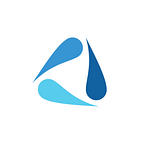In the News: Concerns about AI, Protective Technology against AI Art, and Microsoft AI
AI, AI, AI! This week, learn about how the world is rapidly evolving in light of the boom in generative AI. Hear what the CEO of OpenAI has to say about the ethical implications of AI. Discover Glaze and how a team of UChicago PhD students and researchers created a tool for artists to protect their work from AI art generators. See how Microsoft is updating their 365 apps with their own AI, Copilot.
Will the Machines Turn Against Us?
By: Sameer Tirumala
OpenAI’s application ChatGPT has taken the world by storm during the past months, and the latest version GPT-4 has dominated the news recently. It became the fastest-growing consumer application ever, likely due to its wide range of capabilities that improved from its already-useful predecessor. The tool lives up to its purpose as a reasoning engine as it was able to score 90% on the U.S. bar exams, and it can code in most programming languages. This last feature was the primary concern of OpenAI’s CEO, Sam Altman. He warns of bad actors that could use the tool to engineer cyber attacks. Elon Musk chimed in as well, calling Microsoft using a ChatGPT-4 chatbot in its Bing search engine a complete lack of ethical oversight.
Even ChatGPT-4 still has a ways to go — it has been shown to make blatantly false claims. However, regulators will need to keep an eye on technology like this as it gets closer and closer matching what humans can do.
Glaze Project Supports Ethical Security
By: Annika Lin
To prevent AI models like ChatGPT from copying artists’ styles without their consent, a team of UChicago PhD students and professors have created a tool called Glaze.
At a high level, Glaze generates a cloaked version for a given image. During this process, none of the artwork can ever leave the user’s computer. So, instead of posting the original artwork online, the artist would post the cloaked artwork to protect their style from AI art generators.
For example, let’s say Stable Diffusion creates images in Karla’s style after it sees just a few pieces of Karla’s original artwork (taken from her online portfolio). However, when Karla uses Glaze to cloak her artwork by adding tiny changes before posting them on her online portfolio, Stable Diffusion will not learn Karla’s artistic style. Instead, the model will interpret her art as a different style (e.g., that of Vincent van Gogh). Someone prompting Stable Diffusion to generate “artwork in Karla Ortiz’s style” would instead get images in the style of Van Gogh (or some hybrid). This protects Karla’s style from being reproduced without her consent!
You can read more about Glaze in the research paper here.
Do you have other ideas of ethical security techniques that can be utilized to develop practical solutions and help real users?
Is your AI colleague from Microsoft or Google?
By: Maggie Shen
On March 16, Microsoft announced a new AI feature, Copilot, across its Microsoft 365 apps (e.g. Word, Excel, PowerPoint, and Outlook) to help boost user productivity. The new “business chat” feature is able to extract data and execute user instructions across applications upon a single written command.
This deployment of new AI-powered features encapsulates the fierce on-going competition among tech giants to rethink, reinvent, and reshape the relationship between software and users, which started with last year’s launch of OpenAI’s ChatGPT. Microsoft claimed that OpenAI’s release of the powerful GPT-4, along with the old GPT-3.5 model, business, and application data, solidified its Copilot features. Both Microsoft and Google’s parent company, Alphabet Inc, showcased new AI features to “draft prose in its own word processor” for their email apps. According to Microsoft, Copilot can also present a real-time summary of online meetings in the Teams collaboration software. Microsoft is also using Copilot to enhance Excel. Any person who is able to describe a calculation in plain text can access the computational wizardry of the spreadsheet software. Despite their confidence, these generative AI can make mistakes, but the company strives to build a more personalized AI in the long term with these new developments.
